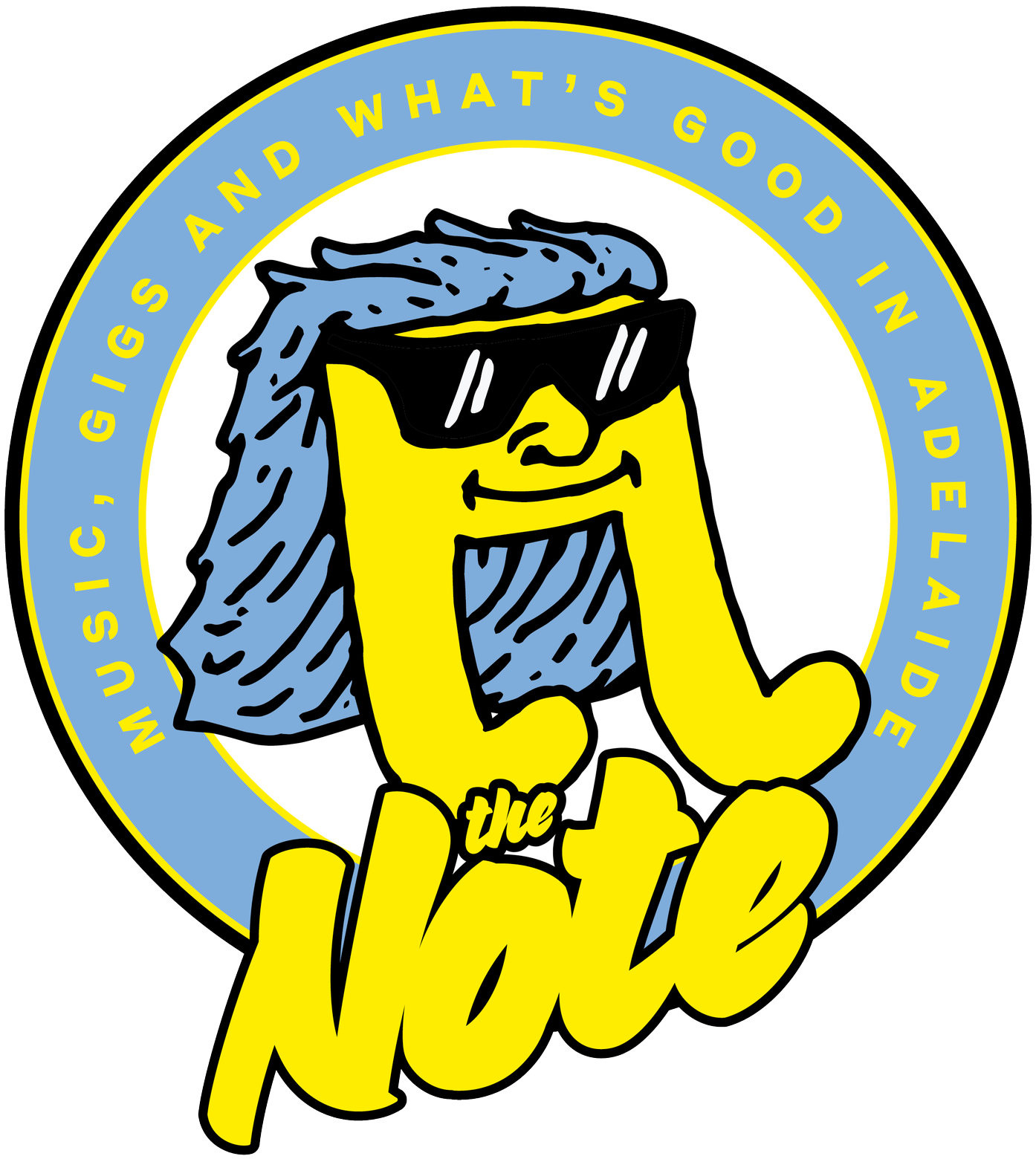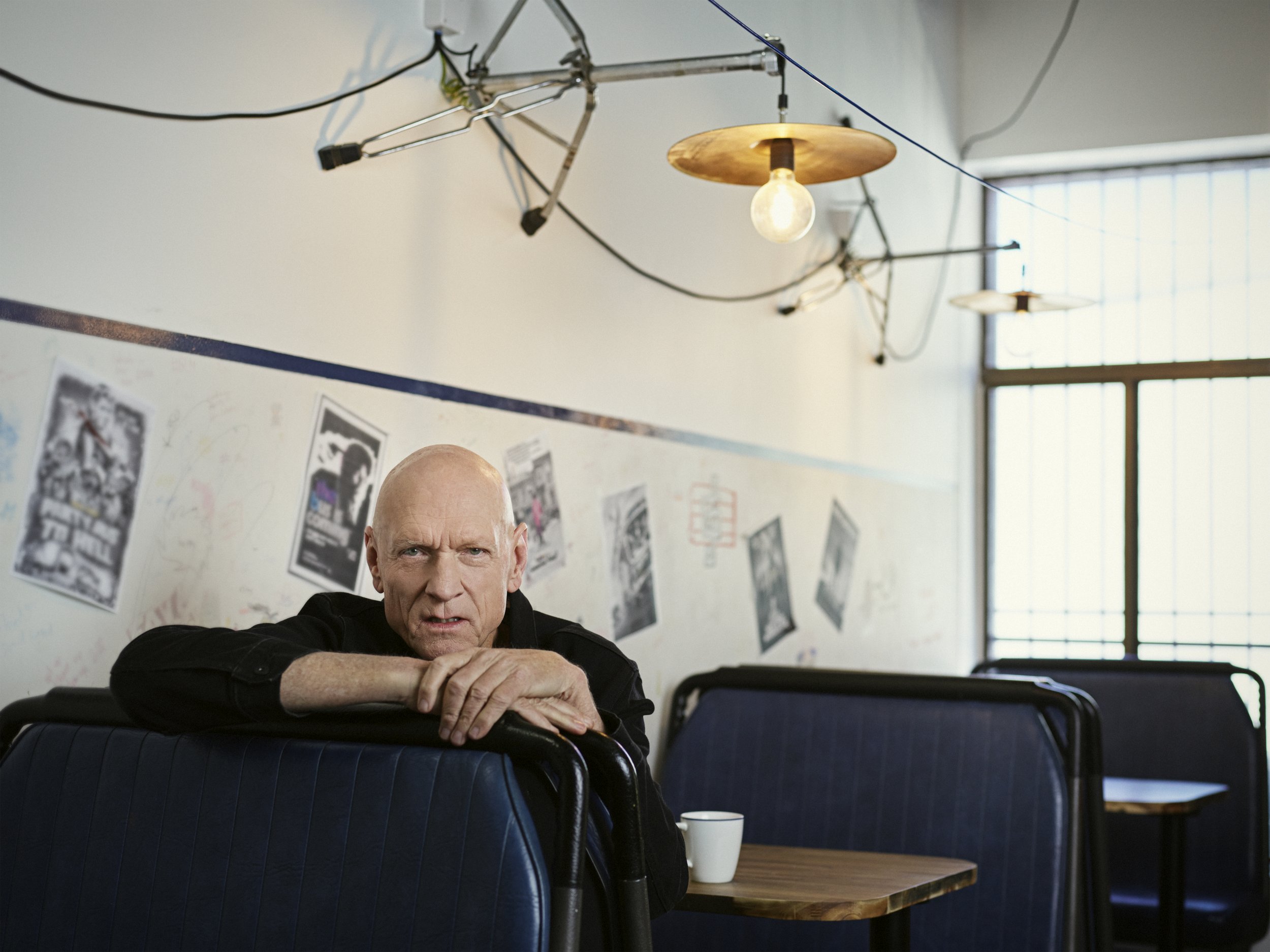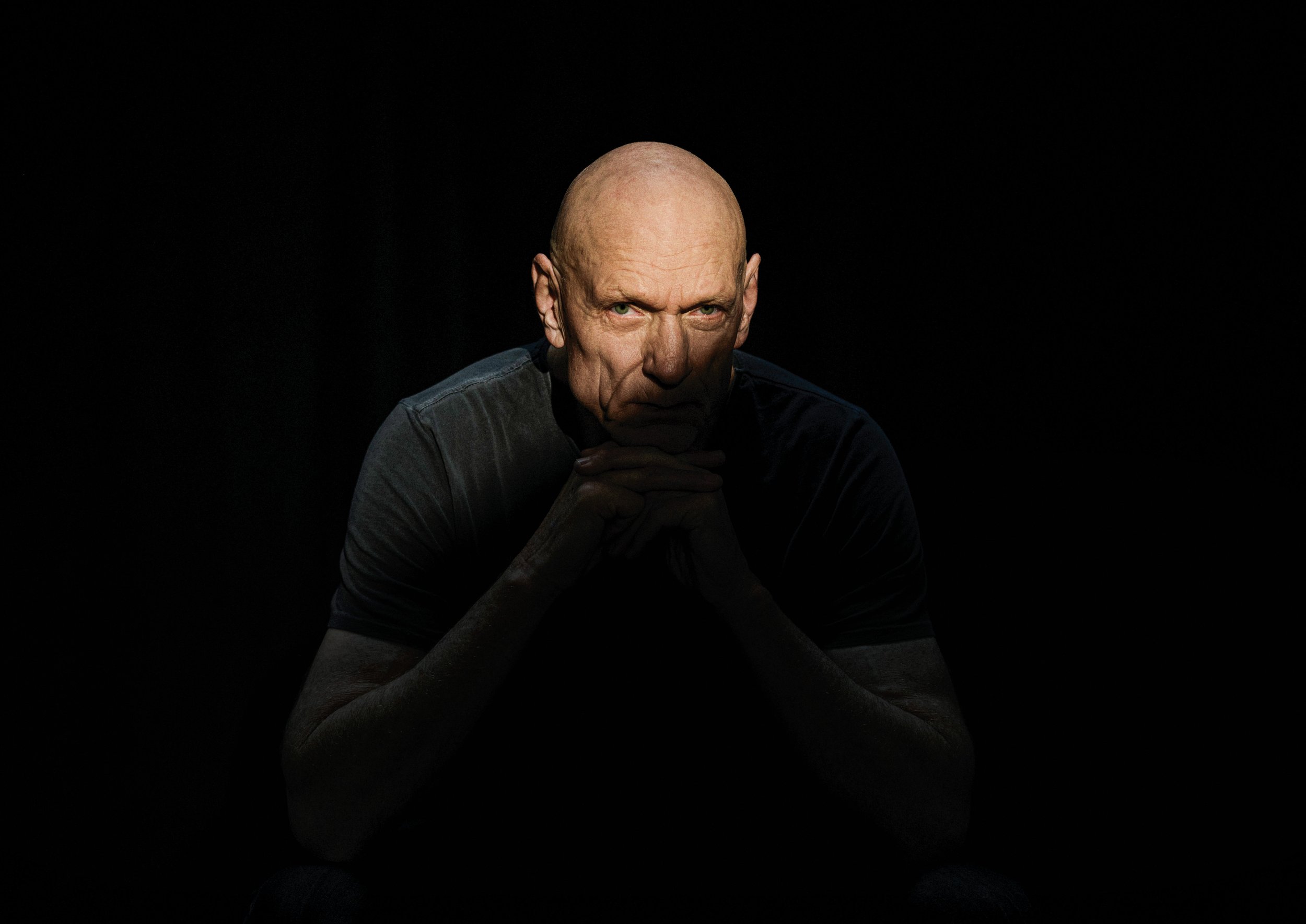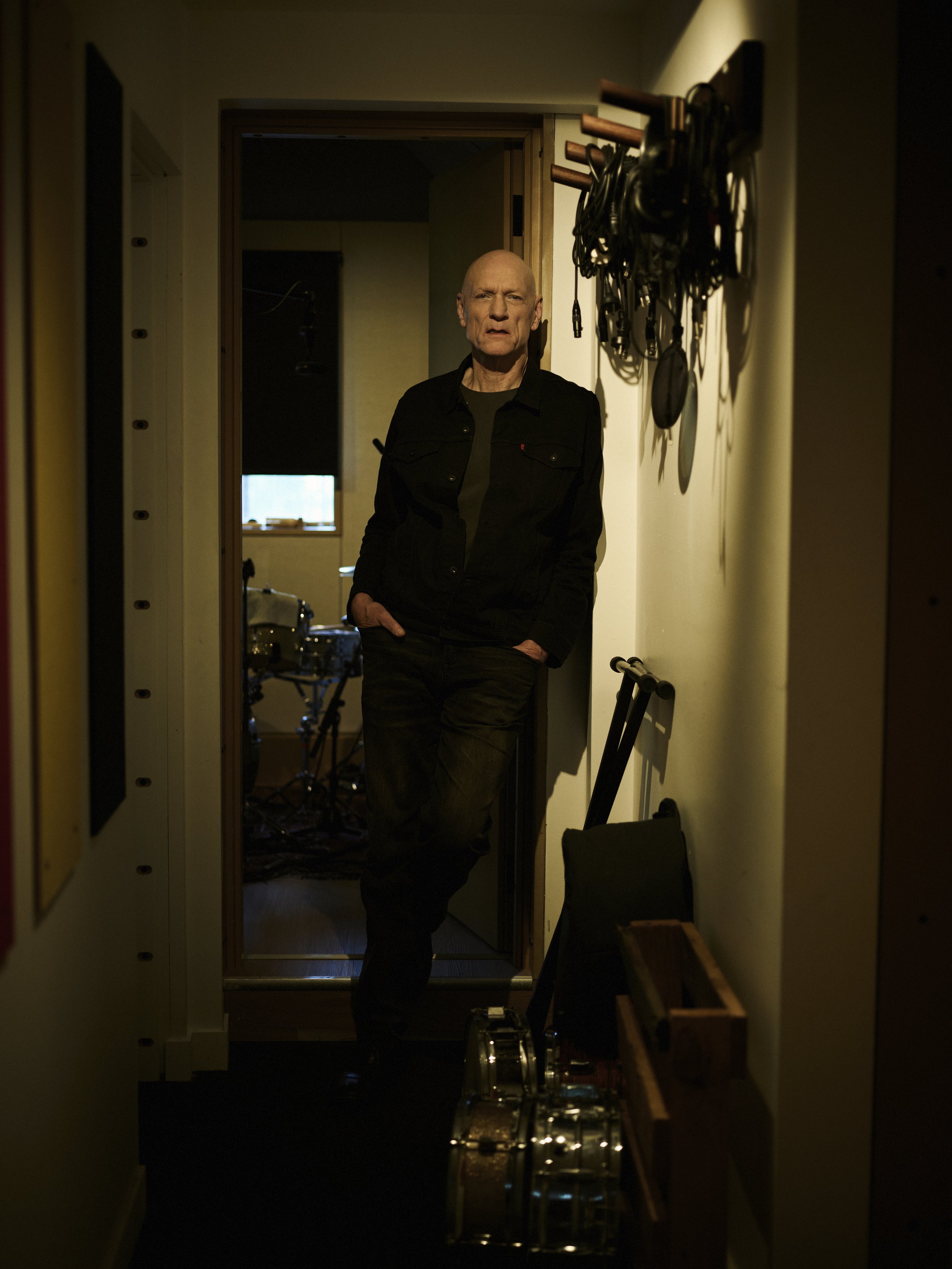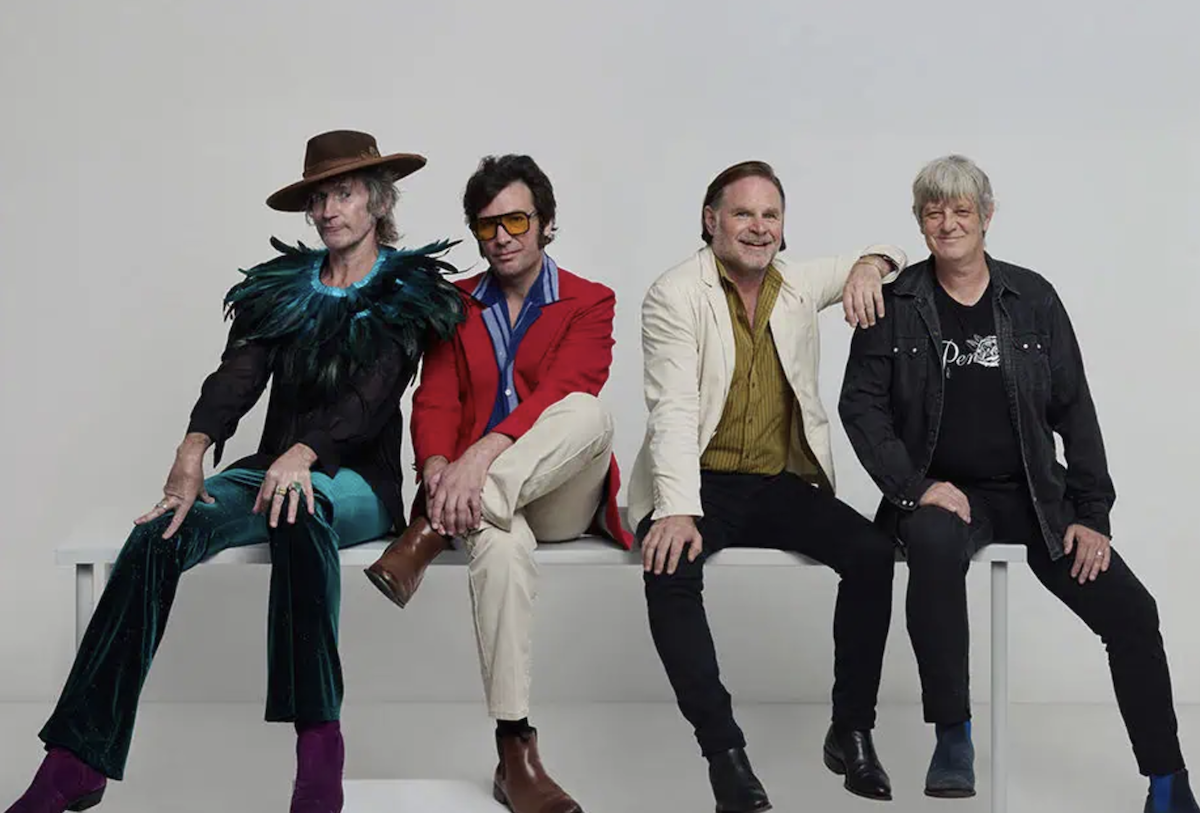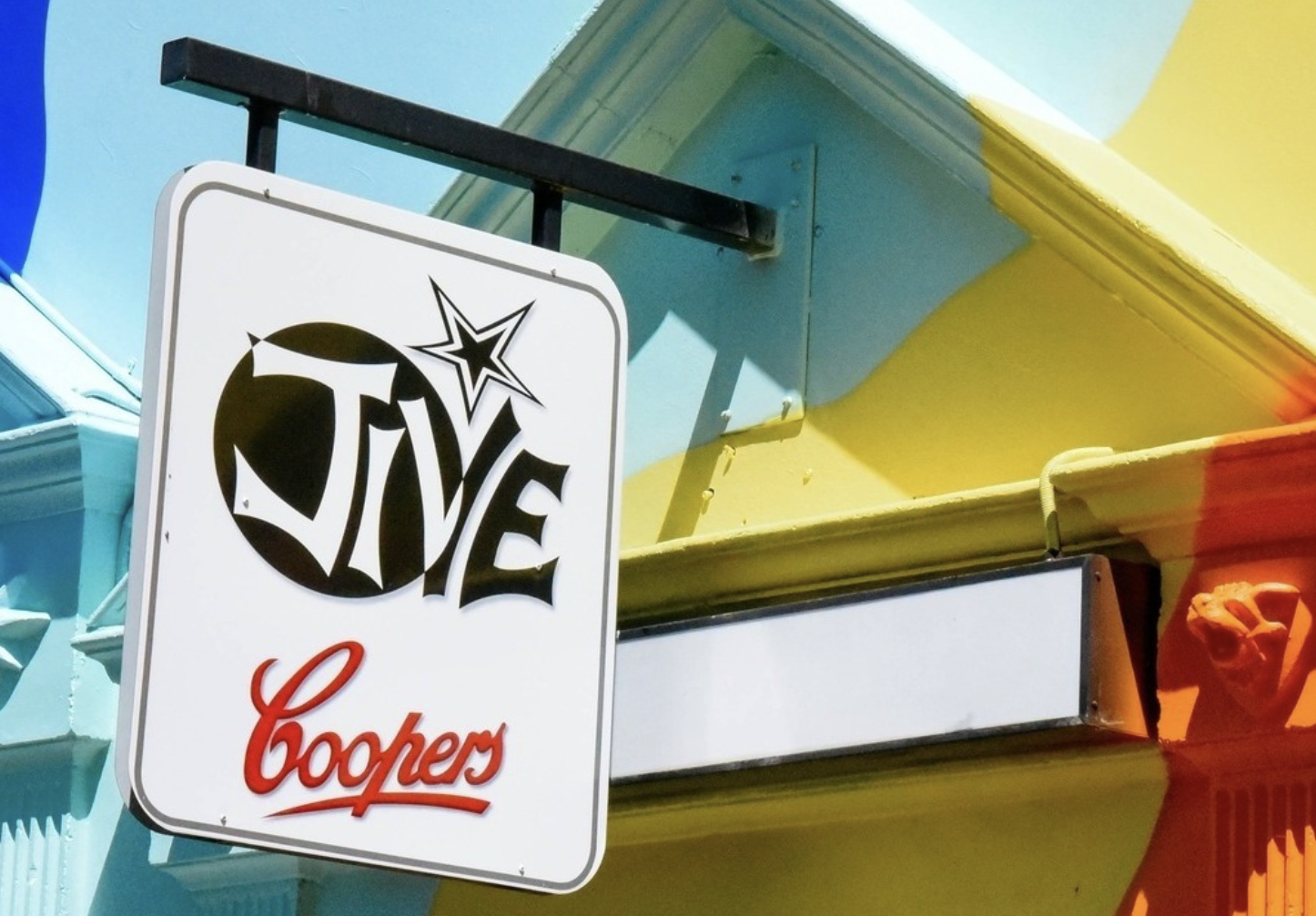True Compass: Peter Garrett
Activist, former federal minister and God of political rock Peter Garrett says his second home is the stage. On March 22, he returns to Adelaide, taking to Hindley Street Music Hall with his new album The True North. He talks with The Note about the loneliness of the screen age, playing under nature’s light show and why connectedness can get the good stuff done.
Words by Max Anderson | Images by Kane Hibberd
Peter, congratulations on your new album! What can you tell us about The True North?
Thankyou! It was a surprising but very welcome album that literally came off the back of finishing the big Oils run [The Final Tour, 2022]. I was feeling really energetic and positive about music-making. There were some unfinished songs that were hanging around and I thought we’ll go out, see if we can find a few more, then went into the studio in Sydney with Martin [Rotsey, Midnight Oil guitarist] and some others... I’ve ended up with something which I’m feeling really positive about. And after many, many years at the wheel, it’s pretty good to be able to say that!
Tell us, why the name The True North?
The first track is called ‘The True North’ and it’s essentially a meditation on that part of Australia which I think is very special. It’s everything north of the Tropic of Capricorn, if you like – those reaches of Australia which are massive, extremely striking, very important globally, but also where Aboriginal culture is strong and consistent. It’s [a place] where there’s opportunities to get things wrong and get things right. But the true north is also what we might describe as our own internal compass – I need to find my true north so that I feel like what I’m doing is useful.
Your new single ‘Permaglow’ is classic Peter Garrett – impassioned, driven and with lots of Australian allusions. But while it draws you in, it’s also very bleak, describing a lonely, disconnected society living in the ‘screen age’. You’re sounding another warning – why?
Well, maybe that’s the job description – I probably can’t help it! In terms of the warning, it’s a reflection of what I was seeing and feeling around me, that we’re living in a world where we’ve never been more connected but never been more lonely. I was wandering around town late in the evening and bumping into people who were scrolling furiously on something, and seeing blue lights flashing in the windows of apartments, knowing people were just sitting there by themselves. It made me sad in a way and of course, I’ve had a go at writing about it. The track is probably one of the rockiest things on the record. There are other songs on The True North which I hope have got enough of the positive – [songs] to suggest that we just address things and try to get things headed in the right direction.
So, do you think you’ve affected more change as a musician or a minister?
I don’t think you can keep a tally on those sorts of things. And there are different kinds of change. In both settings. I’ve been extremely fortunate to be at the apex point on issues that are very important to me – like environment – but I don’t think it’s an either/or proposition. It’s not a binary. [In politics] you’re working within a different structure with different levels of accountability, and of course, you’ve got an opposition that’s trying to kill you, as it were. But I think that both [music and politics] have a role to play and I’ve experienced them both.
We can’t wait for your gig at Hindley Street Music Hall on March 22. What we can expect from the show?
I think it’ll be a great celebration of being onstage with Martin Rotsey from Midnight Oil – a dear colleague who I’ve played with for many years – as well as The Alter Egos, some of Sydney’s finest musicians. They’ve come in to give full expression to The True North songs, plus we’ll play some other stuff. It’ll be a dive deep into that natural experience of being in a room with people and playing to them. It’s still my second home – it’s what I really love to do. We won’t be holding back.
The songs you’ve been performing over the past 40 years are pretty powerful. When you’re on stage, do you physically feel the full gamut of emotions? Like, do you literally feel rage, sadness, despair or love? Or is that all invested at the songwriting stage?
I think sometimes I [feel them]. It depends on the song. But you’re right, it’s more at the writing stage – and when you get into [the performance] the task is really to be the vessel for the song and not be thinking about anything else. Very occasionally, the emotions can come and get you. There’s one of Rob [Hirst]’s songs called ‘Mountains of Burma’. We didn’t play it a lot, but on some nights we’d get to the big middle eight and it just used to throw me back [to when] I was a kid and I’d go out and stay with some family friends on a sheep farm in western New South Wales. It was pretty rough country and for some reason the middle eight took me there... That could be a moment. You just never know when it’s going to creep up on you.
You’ve had a long collaboration with Oils guitarist Martin Rotsey. Where’s your relationship at now?
We know each other very, very well. We sometimes don’t need to talk and explain things to one another. He’s a very pure musician – his guitar’s almost like an extension of his body. But he’s not someone who talks a lot about what he’s doing, he just plays. It’s incredible to be in that trusted space where you’re sharing a strong sense of how you want something to sound.
You’ve done countless performances in South Australia...
Oh yeah! Heaps!
...are there any in particular that you recall?
We used to play Memorial Drive in the ’80s and early ’90s. We played a Friday or Saturday night once, and there was an absolute stupendous thunder and lightning storm – but literally over the stage! You didn’t need a light show, it was just incredible! We did a couple of very big shows at WOMAD – they were memorable because the setting is so brilliant and people are very open to what you’re doing. We’ve also done some rough and ready pub gigs – and everything in between.
How have your audiences changed over the years?
Well, the audience has gotten younger – and older! So it’s gotten broader. And there’s more women coming, which we greatly welcome. Going back into that early Oz rock pub period, they were pretty tanked-up shows with lots of young guys drinking beer. Now we’re playing in places where more women are coming to enjoy it, there’s a wider demographic. I mean, people are bringing their kids who are no longer kids, so you’re really looking at this beautiful kaleidoscope of Australia.
How do you think activism has changed within the younger generations?
Clearly, the social media component is much more dominant. As to its effectiveness, I think the jury’s still out.
There was a period there where people became quite apathetic – you weren’t getting much activism on campuses, and it was difficult for community groups to get people to show up and protect a bit of bushland or creek. Thankfully, that’s starting to change. There’s a new generation coming through that seems to be more motivated.
I think that waxes and wanes a bit, depending on what’s going on in people’s lives and depending on what’s going on in the wider world. But at the end of the day, it’s still the business of being active: it’s being active in the street or in your house, it can be active online or at a sporting club... It’s the business of engagement and connectedness and that’s the key to some of the things that I sing about. When we work together, when we’re arm in arm, shoulder to shoulder, we can get the good stuff done.
More than 35 years after the release of ‘Beds Are Burning’, would you describe yourself as hopeful?
I’m optimistic by nature but I think we’ve got a battle on partly due to the way in which social media platforms are transmitting information. We’re almost in a sort of a ‘what’s the truth?’ environment and it makes it much harder to prosecute arguments.
On the question of what’s next for genuine reconciliation? Look, the [Voice] referendum was a setback, but it’s not as great as some people believed. Six million people voted in favour – and that’s a lot of Australians. The gap is still wide, but I genuinely believe there is a determined Australian population and some determined governments that want to right that wrong. We’re seeing it in sport, in music, we’re seeing it increasingly in business and academia. More Aboriginal people are coming through, finishing school, going to uni, proudly asserting themselves and making their contributions – and over time we will end up with a prevailed nation where we are walking together.
Catch Peter Garrett and his band The Alter Egos at Hindley Street Music Hall on March 22. His new solo record The True North is out March 15.
